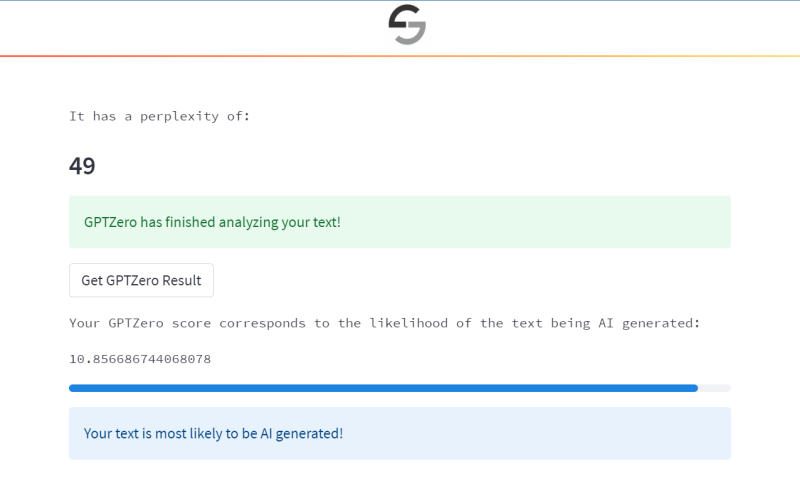From: Fitzpatrick, Stephen
Sent: Sunday, January 22, 2023 7:54 AM
Subject: Chat GPT
Colleagues,
At a debate tournament on December 10th a coach from the city introduced me to ChatGPT, the new AI chatbot that had been released by Open AI a few weeks earlier. He demonstrated some of its capabilities and it was eerie to observe as it spit out amusing stories, poems, screenplays, and answers to basic questions, all while using completely natural language commands. My initial response was that it was a really neat parlor trick – I had it write an ode to my sister in the style of a Shakespearan sonnet for hosting our Christmas Eve dinner party on my phone as a demonstration for my relatives which my brother-in-law was so impressed with that he read it to the table. I imagine most of you have heard of or tried it, but if you haven’t, I would strongly recommend you do so, if only to see first-hand what all the fuss is about. It’s currently free but that may change.
Since then, I have gone down the proverbial rabbit hole and read virtually everything I can get my hands on about how the new AI is being used in just the 8 or so weeks it has gone public. It has been embraced in the business sector in every industry which creates content – marketing departments have produced numerous guides with sophisticated instructions on how to create the best prompts to produce the most helpful content for your business – it automates blog posts, twitter feeds, writes ad copy, etc…
And, of course, most of the coverage I have been interested in is how ChatGPT is challenging commonly held assumptions about how we teach writing (though I have since discovered how powerful the tool is for almost any subject) and help kids learn. The coverage is all over the place and there are too many articles to point people to (I know Jed has been collating many of them online and I have dozens and dozens as well – it was the topic for one of a debate tournament I attended two weekends ago) but I read one this morning (by the Toronto Star) that I think best captures the moment and does as comprehensive a job laying out the issues as any I have seen. If you have not heard much about ChatGPT or used it and want to read just one piece to get up to speed, this is a good one and it’s not long:
ChatGPT is a pretty good student: Why schools need to figure out this AI technology fast
With exams looming and the 10th and 11th grade history research papers on the horizon, I wanted to initiate a conversation about this now, so people are aware of its existence. In just the past month and a half, ChatGPT has been an incredibly useful tool for me as a teacher, especially as a debate coach – generating prompts, brainstorming arguments, providing hook openings for debate speeches, and just basically serving as a debate assistant for many of the content related questions involved in the activity. But as I have gotten better with using it and learned much more about how to push the limits of its capabilities, I’ve been astonished at what it is able to do. I have many, many different examples I would be happy to share with people, but here is just one – an initial draft of an outline for a research paper on one of the 10th grade research prompts. Bear in mind that the entire outline was generated solely through prompts interacting with ChatGPT. I made zero edits. You can see the outline here. Regardless of what your assessment is of the overall quality, I think most would agree it is more than a passable response to the assignment, even from some of our more accomplished 10th graders. Just to be clear, this was not produced in a single output from a single prompt, but through back-and-forth iterations of subsequent questions to generate content using ChatGPT’s own outputs as source material. All I did was format it. It took several hours over a few weeks, but a lot of that was trial and error. I could do the same for another paper in a fraction of the time. I also have a passable annotated bibliography for this same paper that took less than 15 minutes to complete with proper sources and citations. Obviously, the implications here are significant.
Just anecdotally, I have not heard the kids talking much about it (though they are definitely aware of it) and when I demonstrated some of its less serious features to my advisory a few weeks ago, they were impressed but did not seem to immediately grasp the implications. I don’t get the sense that many kids are using it for their work yet. That will likely change as more and more begin to experiment with it. And, of course, this is just the beginning, with another version of GPT 4 on the horizon and billions being poured into more AI startups as Google and Microsoft are jumping headfirst into this space. This is not an issue which is going to just disappear.
But I do think, especially in the upper grades, we need to be aware of it and have a discussion about it sooner rather than later.
Thanks and enjoy the rest of your weekend!
SRF



:format(webp)/https://www.thestar.com/content/dam/thestar/news/gta/2023/01/21/chatgpt-is-a-pretty-good-student-why-schools-need-to-figure-out-this-ai-technology-fast/ci_chatcpgt_education___web.jpg)

